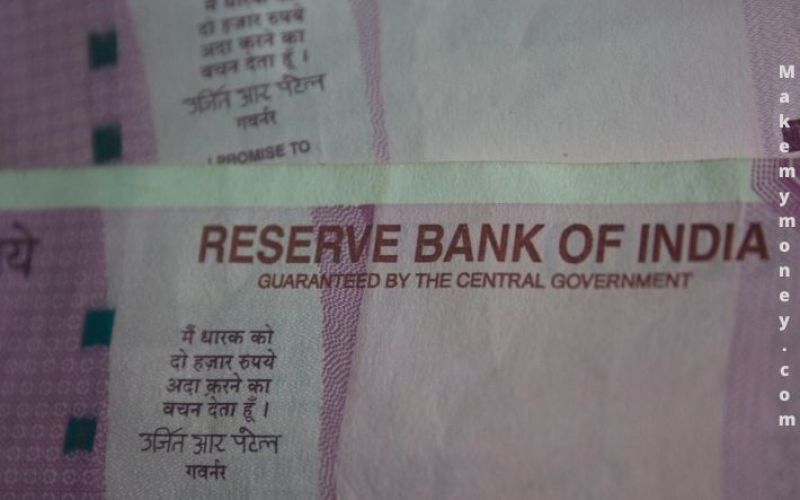
In the modern era, when paper currencies are getting replaced by plastic money, the number of transactions and the transaction's value by using cards are increasing in a large number. With this rise in the volume of transactions and transaction's value by using cards, the safety concerned with these card transactions has also become an important issue.
The government initiated the concept of online transactions at the time of demonetization because there was an instability in the economy due to lack of flowing cash. In such instances companies like Paytm, Gpay , PhonePe etc came forward to support the crises. So if you had money in your account then it was easy to make the payments.
But the most important task was that people were unable to raise enough faith in the people so the government came with UPI initiative. The UPI was a government approved centralized system which provided each user with an unique ID and each time a payment is initiated then it needs to pass through the mentioned channels.
Being the apex institution of all the country's banking and digital payment services, the Reserve Bank of India (RBI) is greatly concerned with the safety of these card transactions. Getting home loans and personal loans via these payment portals has become much easier.
To ensure the customers' safety, security, and convenience concerned with these card transactions, RBI has published certain guidelines.
The points mentioned in the guidelines are as follows.
- In the first place, it has been mentioned in the RBI guideline that you should enable all the cards to use at Point of Sale devices (POS) and ATMs, i.e., the cards should be enabled at contact-based usage points within the territory of India only. The cardholders shall also be given a facility of enabling both international and domestic transactions, i.e., Card not present transactions, international transactions, i.e., card-present transactions, and contactless transactions by the issuers.
- Secondly, according to the RBI guideline, the issuers have been given the authority to decide on the international and domestic transactions, i.e., Card not present transactions, domestic transactions, i.e., card-present transactions, or contactless transactions using existing cards, based on their risk perception.
- The guideline also mentions that existing cards that have not been used for domestic, international, or contactless transactions shall be disabled by the respective issuers on a mandatory note.
- Thirdly, the guideline also states that all cardholders should be provided with the facility to set, switch on, switch off, modify or reset the limit of transactions (within the card limit). For all sorts of international and domestic transactions at ATMs, Point of Sales devices (POSs), contactless transactions, or online transactions by the respective issuers of the cards.
- The issuers should make all the facilities mentioned above available to the cardholders for 24 hours and seven days of the week via all the possible mediums, such as mobile applications, interactive voice responses (IVR), ATMs, internet banking, and offices and branches located at different locations.
- The issuers should also be responsible for sending the alerts or notifications to the cardholders through emails or messages (SMS) if any changes are to be made or done in the cards.
- Fourthly, all the prepaid gift cards, cards used at mass transit systems, and similar items are not included under these guidelines.
- Fifthly, all the card networks and issuers of the respective cards are allowed to give huge publicity to all these guidelines.
- Sixthly, all these directions have been issued under Section 10(2) of the Payment and Settlement Systems Act, 2007 (Act 51 of 2007) and on March 16, 2020.
Another important step taken by the Reserve Bank of India to ensure the safety of transactions using cards is to enable two steps authentications for Card, not present transactions (CNP). These CNP often contain low interest loans which are provided by the companies of a certain amount based on your credit score.
Reserve Bank of India has also introduced several measures and the working group to secure card-present transactions. Commercial banks have also introduced validation checks and place mechanisms for the ease of transferring funds online. They have introduced measures such as
i) providing beneficiary services to the customers,
ii) enrolling the customers for internet banking,
iii) checking of velocities on transactions.
Conclusion
It can be said that although the Reserve Bank of India (RBI) has published the guidelines and other commercial banks are following the guidelines. Still, cyber-attacks are also becoming unpredictable day by day. In such a scenario, general public awareness is of the utmost need. The common public has to be very cautious while making payments using cards at ATMs, shopping malls, online payments, or any other selling point.
Make My Money is a platform which understands all your financial concerns and provide advanced support and guidance to tackle these issues.
Subscribe our monthly newsletter to know more about offers and new tips we share on how to manage your finance.















